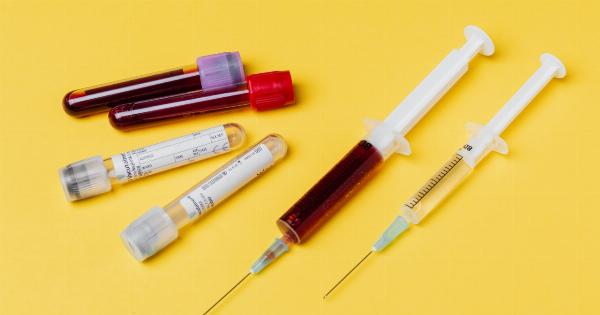High blood pressure, also known as hypertension, is a common health issue that affects millions of people around the world.
It is often referred to as the silent killer because it has few symptoms but can lead to serious complications such as heart disease, stroke, and kidney failure.
Causes of Hypertension
There are several factors that can contribute to the development of hypertension, including genetics, age, gender, lifestyle choices, and certain medical conditions.
While most people are aware of the impact that factors such as diet, exercise, and stress have on blood pressure levels, oral health is often overlooked as a potential factor.
Oral Health and Hypertension
Research has shown a link between oral health and hypertension, suggesting that poor oral hygiene and oral infections can contribute to high blood pressure levels. Here are some ways in which oral solutions can lead to hypertension:.
Gum Disease and Hypertension
Gum disease, also known as periodontal disease, is a bacterial infection that affects the tissues surrounding the teeth. It is caused by the buildup of plaque and tartar on the teeth and gums.
Studies have found that individuals with gum disease are more likely to have higher blood pressure levels compared to those with healthy gums.
Inflammation and Hypertension
Gum disease is characterized by inflammation in the gums. This inflammation can trigger a systemic inflammatory response throughout the body, causing blood vessels to constrict and blood pressure to rise.
The chronic inflammation associated with gum disease can contribute to the development and progression of hypertension.
Oral Infections and Hypertension
Oral infections, such as tooth abscesses or dental caries (cavities), can also lead to hypertension. These infections can introduce harmful bacteria into the bloodstream, causing systemic inflammation and affecting blood pressure regulation.
Chronic Pain and Hypertension
Individuals with chronic oral pain, such as toothaches or temporomandibular joint disorder (TMJ), are more likely to experience elevated blood pressure levels. The persistent pain can cause stress on the body, leading to increased blood pressure.
Antibacterial Mouthwash and Hypertension
While proper oral hygiene is essential for maintaining good oral health, certain oral solutions, such as antibacterial mouthwashes, may have unintended side effects.
Studies have found that the regular use of antibacterial mouthwash can disrupt the natural oral microbiome, which plays a crucial role in maintaining overall health, including blood pressure regulation.
Treatment and Prevention
Fortunately, by prioritizing oral health and practicing good oral hygiene, it is possible to reduce the risk of developing hypertension or manage existing hypertension. Here are some tips:.
1. Brush and floss regularly
Brushing your teeth at least twice a day and flossing daily can help remove plaque and bacteria from the teeth and gums, reducing the risk of gum disease and oral infections.
2. Visit your dentist regularly
Regular dental check-ups and professional cleanings are essential for maintaining oral health. Your dentist can identify early signs of gum disease or other oral health issues and provide appropriate treatment.
3. Practice a balanced diet
Avoiding excessive sugar and consuming a balanced diet rich in fruits, vegetables, and lean proteins can promote good oral health and overall well-being.
4. Limit alcohol and tobacco use
Excessive alcohol consumption and tobacco use can contribute to gum disease and oral infections. By limiting or avoiding these substances, you can reduce the risk of developing hypertension.
5. Use mouthwash with caution
If you choose to use mouthwash, opt for alcohol-free alternatives and use them only as directed. It is always best to consult with your dentist before incorporating any new oral care products into your routine.
Conclusion
Incorporating good oral hygiene practices and prioritizing oral health can have a positive impact on overall well-being, including the prevention and management of hypertension.
By recognizing the potential role that oral health plays in hypertension, individuals can take proactive steps to improve their oral health and reduce the risk of hypertension-related complications.




























